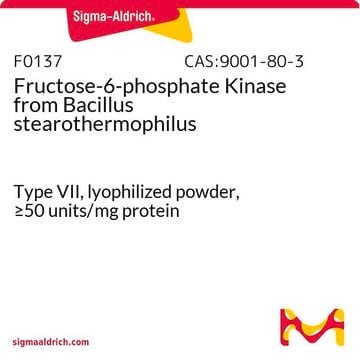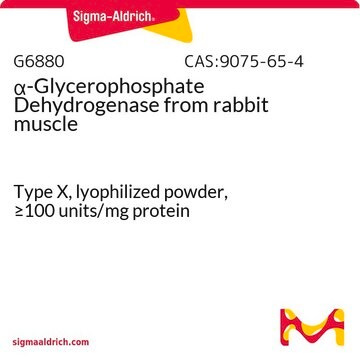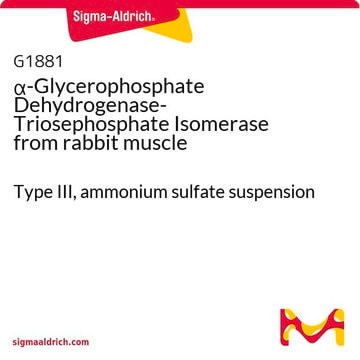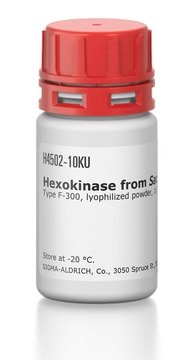F8381
Fructose-6-phosphate Kinase, Pyrophosphate-dependent from Propionibacterium freudenreichii (shermanii)
lyophilized powder, ≥4.0 units/mg protein
Sinónimos:
6-Phosphofructokinase(pyrophosphate), Pyrophosphate: D-fructose-6-phosphate 1-phosphotransferase
About This Item
Productos recomendados
form
lyophilized powder
Quality Level
specific activity
≥4.0 units/mg protein
composition
Protein, 5.0-25.0% biuret
storage temp.
−20°C
Application
Biochem/physiol Actions
Other Notes
Unit Definition
Physical form
signalword
Danger
hcodes
Hazard Classifications
Eye Dam. 1 - Repr. 1B - Resp. Sens. 1 - Skin Corr. 1C
Storage Class
6.1C - Combustible acute toxic Cat.3 / toxic compounds or compounds which causing chronic effects
wgk_germany
WGK 3
flash_point_f
Not applicable
flash_point_c
Not applicable
ppe
dust mask type N95 (US), Eyeshields, Faceshields, Gloves
Elija entre una de las versiones más recientes:
¿Ya tiene este producto?
Encuentre la documentación para los productos que ha comprado recientemente en la Biblioteca de documentos.
Los clientes también vieron
Active Filters
Nuestro equipo de científicos tiene experiencia en todas las áreas de investigación: Ciencias de la vida, Ciencia de los materiales, Síntesis química, Cromatografía, Analítica y muchas otras.
Póngase en contacto con el Servicio técnico













